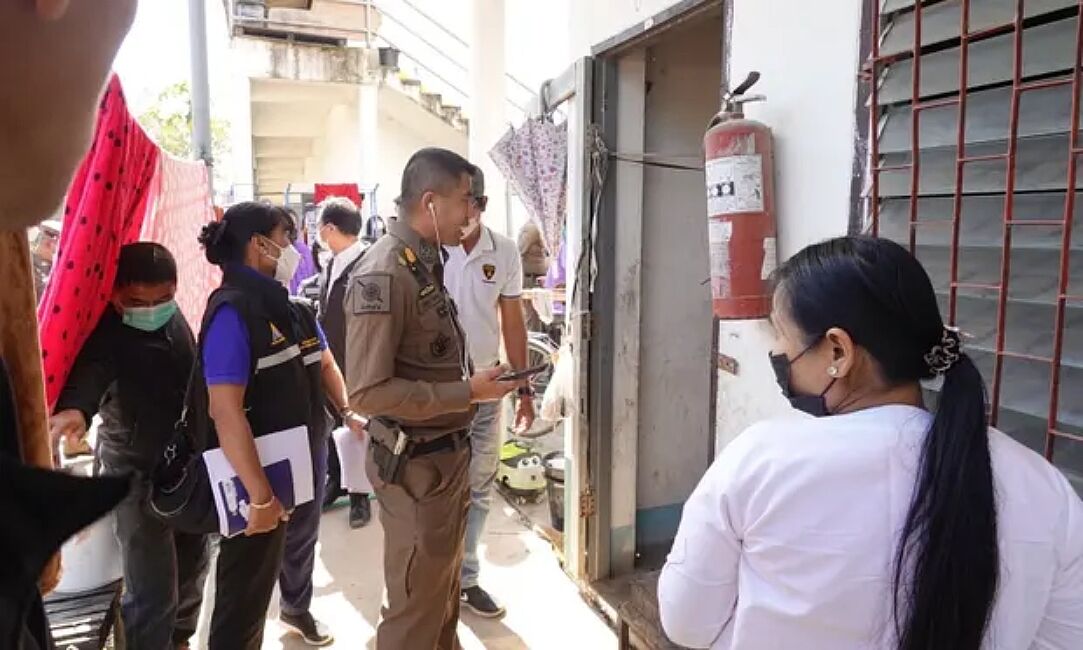Charges filed against Thai factory used by Tesco

After catching heat for what critics considered a half-assed investigation, Thai police have now filed criminal charges against a factory used by Tesco. VK Garment Factory, a clothing factory in Mae Sot used to produce F&F clothes has been charged over its treatment of workers.
The charges for fraud claim that the factory used workers’ bank cards illegally, withheld immigration documents, and forced workers to work overtime. Burmese workers who produced F&F jeans for Tesco in Thailand reported being made to work 99-hour weeks for illegally low pay in appalling conditions.
The factory was alleged to have covered its tracks by opening fake bank accounts where they “paid” the legal wage, though the workers were paid separately with cash.
Thai police were criticised over their inquiry into Tesco’s alleged forced labour claims after completing their investigation in only one day. Civil servants and police allegedly interviewed 114 former workers at the VKG factory on December 28 to screen for possible forced labour. But, as Burmese workers could feel threatened when telling the truth in an interview, a day-long investigation has many feeling it is insufficient.
After The Guardian wrote an exposé bringing international attention to the weak investigation, Police went back and interviewed 52 workers again, resulting in criminal charges being filed.
About 130 former VKG employees have filed a lawsuit against Tesco in the UK, which could be a landmark case. They are claiming that Tesco was negligent and unjustly enriched as a result. One of the claimants is a seven-year-old girl raped within the factory compound while her mother was working late producing F&F clothing.
Although Tesco had no role in the daily operations of the factory, the workers made F&F jeans for the Thai branch of Tesco’s business between 2017 and 2020. The company has stated that it would have severed ties with the supplier had it been aware of any issues of this nature at the time.
Roisai Wongsuban of Freedom Fund called for charges to be brought quickly to stop the exploitation of the Burmese labour force.
“I expected the police inspector to address the issue of wage theft as workers have strong evidence of financial fraud related to wage payment. This continued systematic and deliberate exploitation, together with the restriction in the freedom of movement through withholding workers’ travel documents, constitutes forced labour.”
In August 2020, 136 Burmese workers were fired from the factory after they demanded the minimum wage. They sought legal help, but the Thai labour court ruled only that they were entitled to severance pay and notice pay. They filed an appeal in December seeking compensation for illegally low wages, unpaid overtime and holiday wages.
The managing director of VKG, Sirikul Tatiyawongpaibul, has not commented on the charges but had previously said that the factory had not broken any laws and had provided safe working conditions to all employees. Likewise, Tesco has not issued an official statement but previously stated the factory.
“Protecting the rights of everyone working in our supply chain is absolutely essential to how we do business. In order to uphold our stringent human rights standards, we have a robust auditing process in place across our supply chain and the communities where we operate. We understand the Thai labour court has awarded compensation to those involved, and we would continue to urge the supplier to reimburse employees for any wages they are owed.”
Latest Thailand News
Follow The Thaiger on Google News:


























